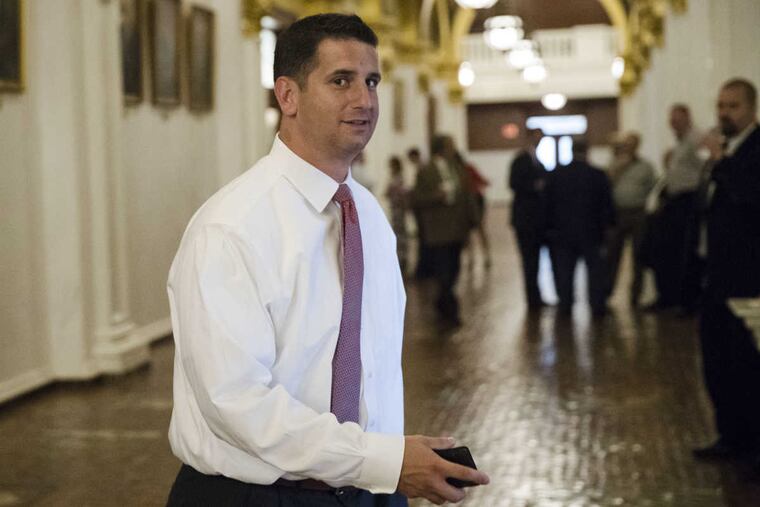In Pa. Capitol, it's all about avoiding a stalemate
House and Senate members were sent home, although no deal to pay for the budget was in place.

HARRISBURG — Though few are using the word stalemate to describe the state of budget talks in the Capitol, all signs point to difficult days, if not weeks, ahead for negotiations.
On Tuesday afternoon, with no deal on how to pay for the nearly $32 billion spending plan the legislature has approved, both House and Senate leaders told their members to go home. They did not set a date for them to return, but told them they could be called back with six hours' notice.
By 5:30 p.m. Tuesday, the Capitol's hallways were empty. And an email to House members from House Speaker Mike Turzai's office urged members to "have a great evening and enjoy the weekend."
At the same time, House Majority Leader Dave Reed (R., Indiana) was telling reporters: "It's got to get done — it will get done.
"You know, sometimes a couple of hours away for everybody is a good thing. We can regroup and put it back together," he said, adding: "I don't think anybody wants to do this all year."
Still, the blame game was being played in certain corners, as disagreements persist over how to raise new dollars to cover the $1.5 billion shortfall in the fiscal year that just ended, as well as a projected $700 million deficit in the fiscal year that began July 1.
Gov. Wolf, backed by many Democrats, has supported revenue proposals that include imposing a new tax on natural gas extraction and expanding the state's 6 percent sales tax to services and items that are currently exempt.
Republicans, who control both legislative chambers, have rejected tax increases. Instead, they have been discussed expanding gambling and further privatizing alcohol sales in the state.
All sides have also said they are seriously considering borrowing up to $1.5 billion to cover last fiscal year's budget shortfall. The money would be paid back through a state fund that receives annual payments from tobacco companies as part of a landmark settlement with the states nearly 20 years ago.
Reaching a deal on all those issues has been difficult.
On Tuesday, Reed accused Wolf, a Democrat, of not being "engaged" during the budget process, and again faulted him for not striking spending lines from the $32 billion budget in order to bring it into balance.
For his part, Wolf has kept a low profile and avoided making the kind of public pronouncements that dragged down budget talks in his first year in office, when there was a historic, nine-month impasse.
His spokesman, J.J. Abbott, on Tuesday would say only: "Gov. Wolf plans to keep negotiating with the General Assembly, and will continue working towards a compromise agreement to balance the budget."
Senate Republican leaders, too, ducked in and out of rooms in the Capitol without publicly discussing their view of the situation.
Senate GOP spokeswoman Jennifer Kocher said: "As negotiations continue, we are hopeful we will return to session soon to finalize the components of the budget."
Several House Republicans — largely moderates from the Philadelphia suburbs — who support a tax on drilling in the Marcellus Shale also said Tuesday that a drilling tax measure could help break the logjam in negotiations.
Several predicted that if GOP leaders would allow such a bill to come up for a floor vote, it would get enough support to pass.
"I think it's the right time to do it," said Rep. Gene DiGirolamo (R., Bucks), adding that he believes the industry could accept a "reasonable" tax in exchange for some "regulatory relief."
"I think there would be a deal and everybody could go home," he said.
There was a push Tuesday in the House to try to force a vote on a severance tax bill, stuck in committee, sponsored by Rep. Kate Harper (R., Montgomery). But with the House sending its members home, it was unclear whether the effort would gain any momentum.
In a statement Tuesday, Harper said that while she did not initiate the move to bring her bill to a floor vote, she thinks a severance tax is a smart policy move that could grease the wheels for a deal.
"It's past time for Pennsylvania to consider enacting a reasonable severance tax, and it will help us balance our budget in a very difficult year without raising sales or income taxes," she said.